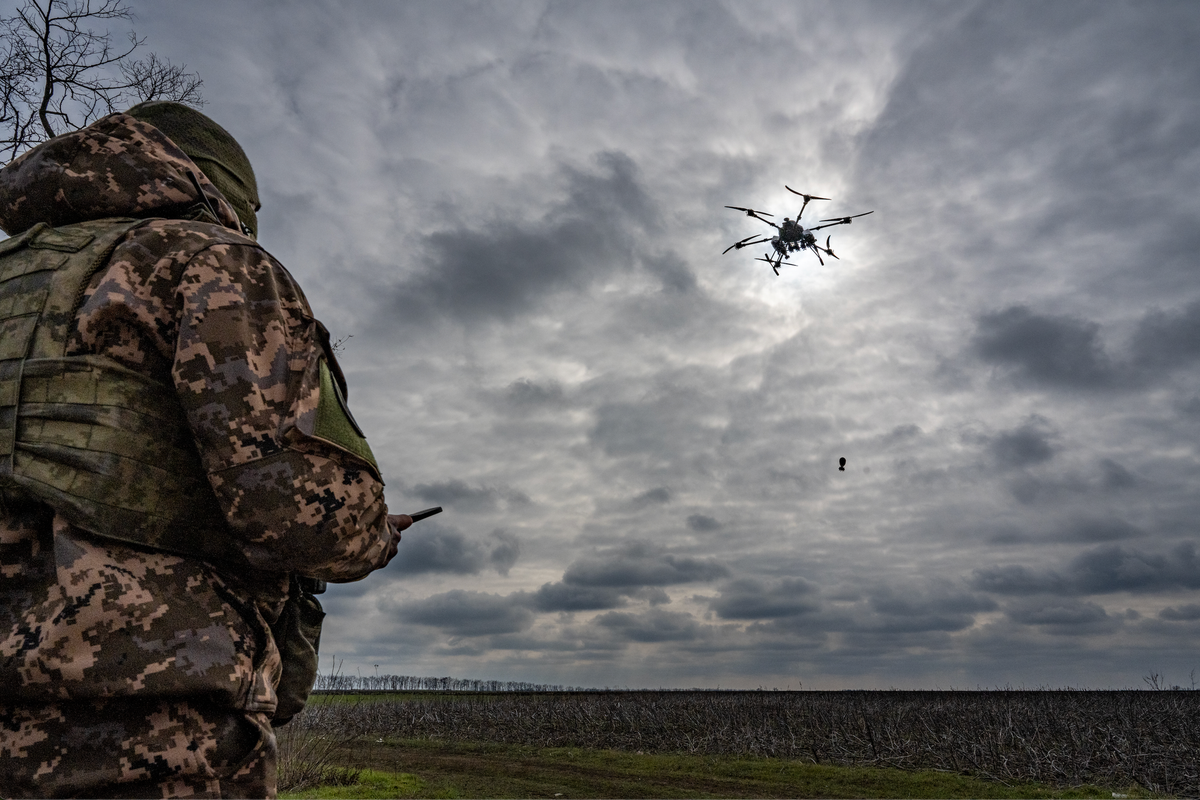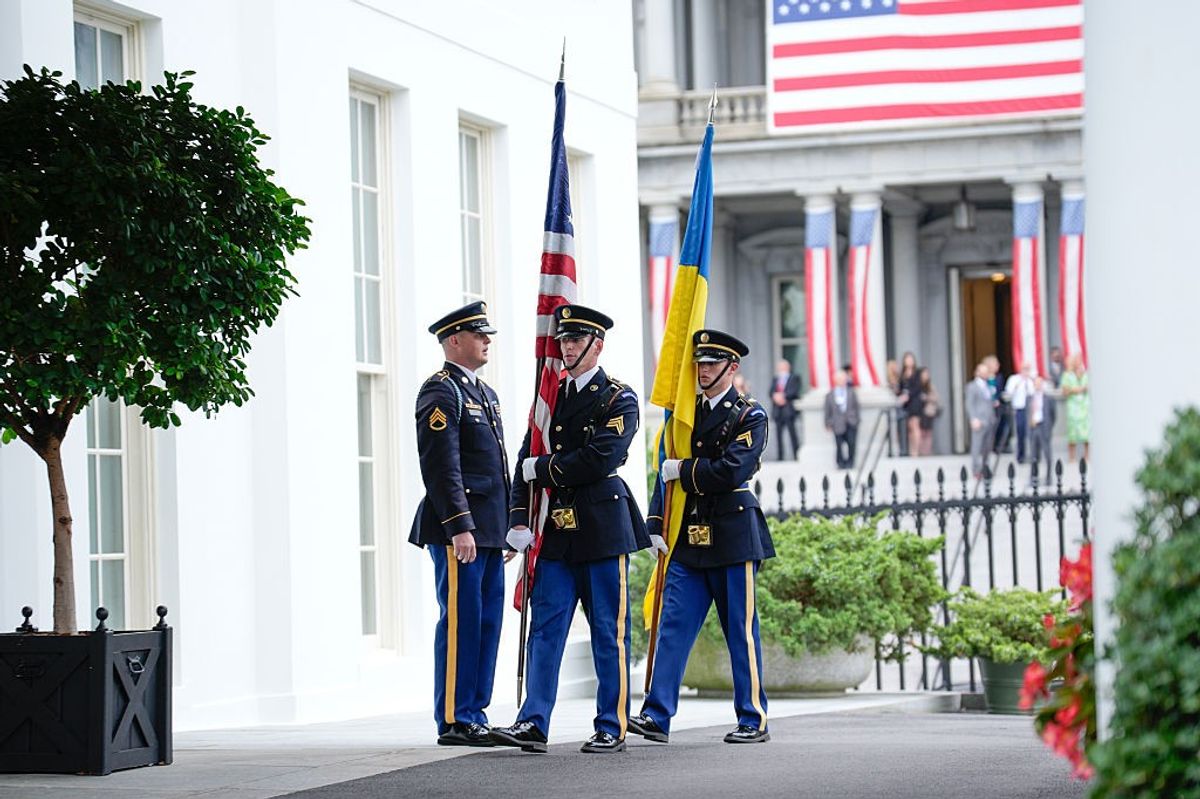EXPERT Q&A — As European policymakers and military leaders consider the potential for security and defense arrangements without the backing of the United States – a notion that would have been unimaginable a few months ago – they are finding a mix of enthusiasm, fresh pledges of military spending, and deep anxiety over gaps that may be difficult to fill.
Few people understand the American contributions to Europe’s defense, and Europe’s own military needs, as well as Lieutenant General Ben Hodges (Ret.), a Cipher Brief expert who served as the top U.S. Army Commander for Europe from 2014 to 2017, and still lives in Germany.
Lt. Gen. Hodges spoke with Cipher Brief Managing Editor Tom Nagorski about the U.S.-Europe rifts over Ukraine, and the broader questions about Europe’s ability to go it alone, should it come to that. Their conversation has been edited for length and clarity. You can watch the full discussion on The Cipher Brief’s YouTube channel.
The Cipher Brief: What's your assessment of the recent ceasefire agreements with Russia – and do you have hope that the current process might lead to a broader agreement, or a longer-term peace?
Lt. Gen. Hodges: I don’t believe the Russians have an interest in actually agreeing to anything substantial. And we just have to have our eyes open when we're dealing with the Russians. They will not honor any agreement they make unless they are forced.
I have to say I'm not very optimistic about this. The [Trump] administration acts as if they think the Russians are serious about really trying to get to a peaceful solution that's acceptable to everybody. And I think for the Russians, these talks are a vehicle for them to stretch things out, and to create situations where they can then turn around and blame the Ukrainians. They have zero interest in actually doing this, as long as Vladimir Putin is alive. They see that the U.S. administration wants a deal badly. And the Russians have a completely different view of all this, but they'll go along with it. So I just don't see any indicators that would give me some confidence that they are serious about it.
The Cipher Brief: What confidence do you have in the various European efforts to step in as we watch all the turmoil back in Washington?
Lt. Gen. Hodges: I'm actually optimistic that European nations will eventually coalesce around some ideas that will increase defense production, increase their levels of readiness, and perhaps even – which will be very powerful – come together to create a ceasefire implementation force — if the discussions about Ukraine actually do get to the point where everybody agrees to a real, full-up ceasefire. Europe can provide that sort of an implementation force.
If you add together the economies of just the European Union, the UK and Canada and Norway, these economies dwarf Russia's economy. If you combine together the armies, navies and air forces of these countries, they're equal to or better than anything that the Russians could put out there. Obviously, in terms of nuclear warheads the Russians have thousands more, but you don't need to match warhead for warhead to have a deterrent. And I think the French could conceivably be that nuclear deterrent if that were necessary as well.
The Cipher Brief: We don't know that we're going to have a full-on rupture between the United States and the rest of Europe, or the rest of NATO. But they're clearly preparing for that. Where are the big challenges for European armies if the United States is increasingly out of the picture?
Lt. Gen. Hodges: I'm glad you put that caveat on it, because I don't believe the U.S. at the end of the day is actually going to just pull away, because we would be screwing ourselves. It's in our economic interests that Europe is stable and secure, because American prosperity is tied to Europe's prosperity. Our biggest trading partner is Europe. So it's in our interests that Europe is stable and secure. Plus, there are hundreds of thousands of Americans that live and work over here. You've got thousands of U.S. businesses over here.
So it seems to me very unlikely that the president would just say, Bad luck for all you guys. We're leaving. I do think he is using things like this to exert pressure on European countries to do more, because we really do – as several presidents have said – need Europe to have a much larger role in the defense of Europe, including American interests, because of what we have to do in the Indo-Pacific region. I think that's the strategic direction.
The holes will be, at least initially, American air power, which is best in the world. A lot of that would be needed in the Indo-Pacific region, so I don't know how much air power would stay behind. The nuclear deterrent that the U.S. has always provided, I don't see a reason that that would have to leave. And the intelligence contribution that the U.S. makes to collective intelligence collection and analysis in Europe, that's pretty significant. But as you know, intel is not just based on having satellites. It's the fusion of all the different things: imagery, signals intelligence, human intelligence. We depend so much on our allies and partners. Not just the Five Eyes; we have very good bilateral intelligence-sharing relationships with most countries in Europe. That's something that would have to be compensated if the U.S. were to pull out.
European leaders need to have the political will to do what needs to be done, and I see increasing evidence that they do. This is not a straight-line smooth thing for sure, but there is increasing evidence. The German Bundestag finally completely passed legislation that allows hundreds of billions of euros in spending – and that is just historic. And that sends a signal to everybody else.
The Cipher Brief: I want to read some of the head-spinning headlines that we have seen in the last six to eight weeks or so from Europe – and get your quick reaction.
Here’s one. “EU slams door on U.S. in colossal defense plan,” which refers to the European Union putting forth this plan – maybe not to go it alone, but to boost defense manufacturing, and basically freeze American manufacturers out. What are your thoughts on that?
Lt. Gen. Hodges: I know that was shocking, breaking news in some ways – but there is no doubt that Europe is trying to grow its own defense industry. And there is real concern that if they have a total reliance on the United States, and if the [Trump] administration doesn't like a country anymore, that could be disrupted. The F-35 [fighter jet], for example, that's the one I hear about the most. Some countries are reconsidering that. I think that would be a huge mistake for them.
I also think that if countries are concerned that they would be somehow left out of updates for U.S. weapons, then they will start looking for other options. So this is where U.S. policy could have a long-term damaging effect on the U.S. defense industry.
The Cipher Brief: Here's another headline. “European military powers work on five to 10 year plan to replace U.S. in NATO.” Even if, as you just said, the breakup isn't here yet, they have to start thinking about it, right?
Lt. Gen. Hodges: All of us, including the United States, generally are thinking five to 10 years out when you're doing big force structure decisions or procurement. You can't live month to month. And so it would be appropriate for any country to be thinking about what they believe they're going to need in the near term. How do you get there? That takes time. This is what presidents going way back have been clamoring for the Europeans to do. It's not just about spending 2%. It's about building up your own capability so that you don't have to have as much U.S. air force, army or whatever in Europe.
The truth of the matter is we don't have that much force in Europe anymore – but what we do have, there's not enough European elements to go with it. So I think this is appropriate, that they would be thinking about how to grow the size of their land forces, their naval capability. And they have to look at how you recruit enough young women and men to serve. These are choices that all the nations are having to make.
The Cipher Brief: Looking at all the steps that the United States has taken that have caused us to have these conversations — the push towards Russia, isolating the Europeans from a lot of these talks in Ukraine — we have to assume that's going to continue for a while. Do you think that's doing irreparable damage to the transatlantic relationship? Is it reversible?
Lt. Gen. Hodges: I spoke at a dinner in Frankfurt recently, and afterwards I was talking with four or five German businessmen. These are people that love America. They have gone to school in the States, they have business in the States, their kids went to school there. They were using phrases like this – one of them said, “This is clearly the end of the post-war era.” Another said that “this is a loss of a picture of the world that we all grew up with.” So these words like loss, saying they were heartbroken, and that we shared so many values – shared, in the past tense.
We fought two wars with Germany and then we ended up being the closest of allies. So I'm reluctant to say nothing is unrepairable, but it will be different.
The Cipher Brief is committed to publishing a range of perspectives on national security issues submitted by deeply experienced national security professionals.
Opinions expressed are those of the author and do not represent the views or opinions of The Cipher Brief.
Have a perspective to share based on your experience in the national security field? Send it to Editor@thecipherbrief.com for publication consideration.
Read more expert-driven national security insights, perspective and analysis in The Cipher Brief















